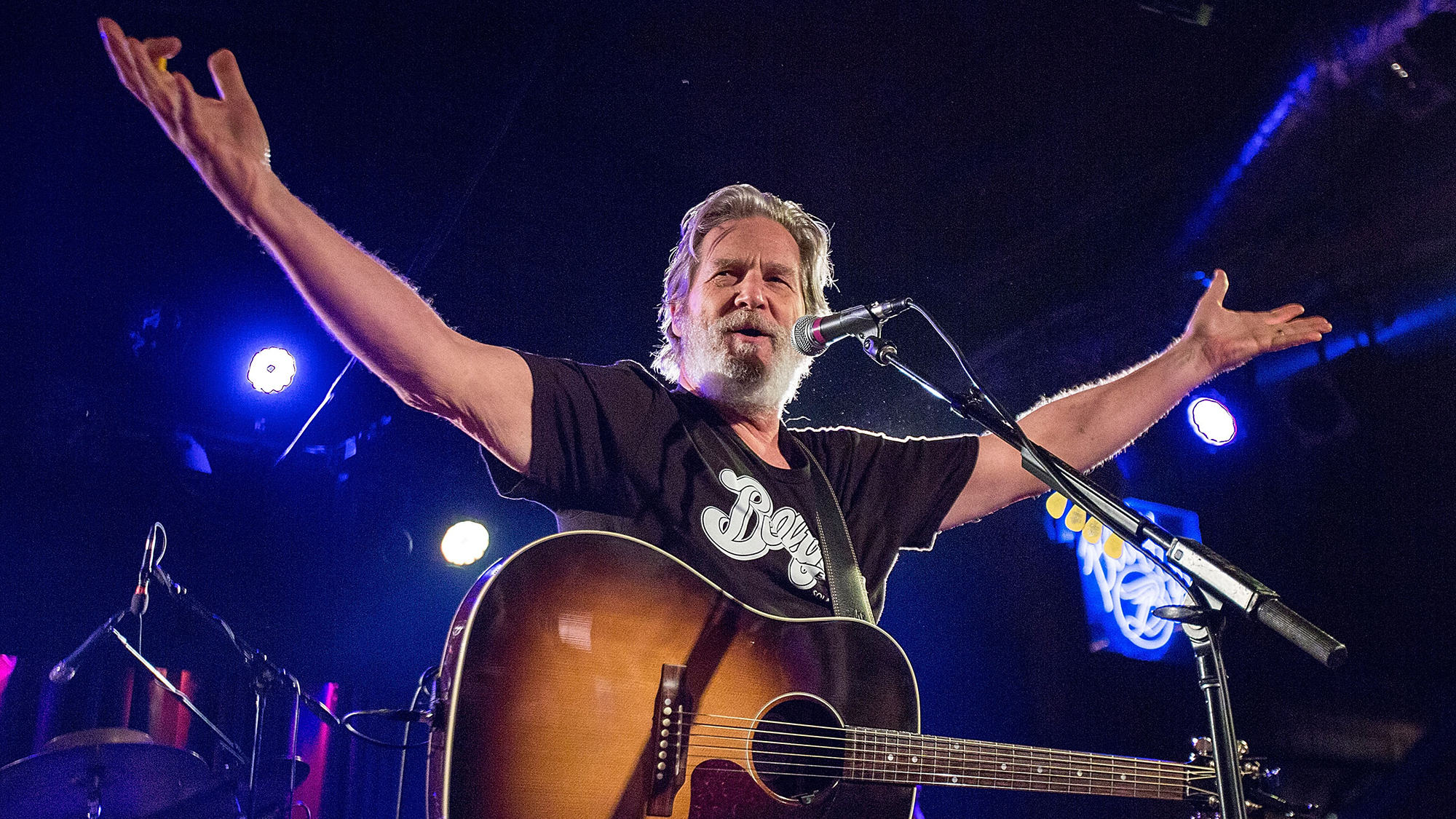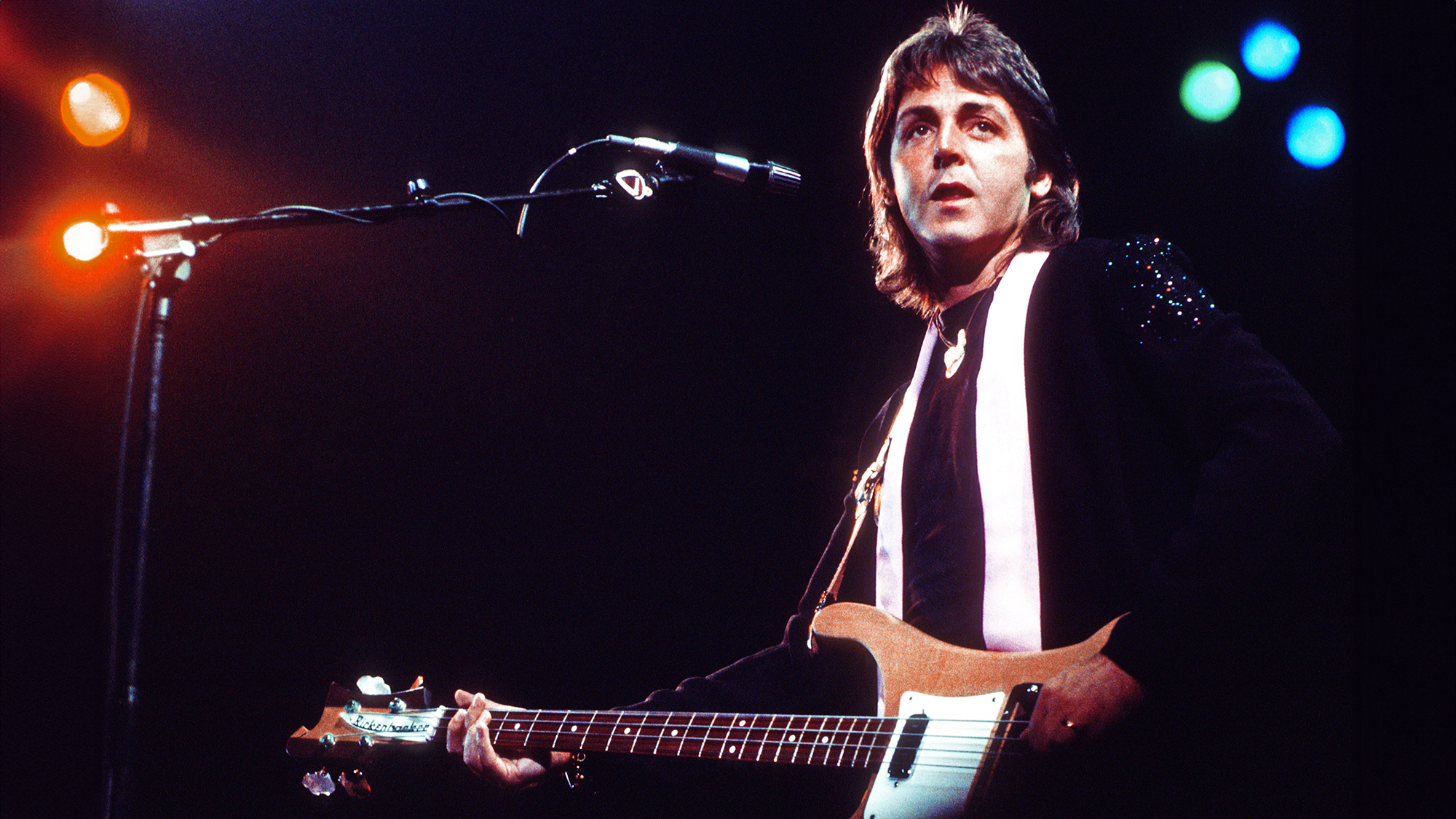
All the latest guitar news, interviews, lessons, reviews, deals and more, direct to your inbox!
You are now subscribed
Your newsletter sign-up was successful
Before he was known as a writer, producer and one of the world’s foremost fingerstyle guitarists, Laurence Juber spent three years, from 1978 to 1981, as a member of Wings. Prior to that, he had established himself as an in-demand London session guitarist. An invitation to jam with Wings guitarist-bassist Denny Laine soon changed into a life-changing event when Paul and Linda McCartney joined in.
After playing a few blues and reggae tunes, Paul turned to Juber and asked, “What are you doing for the next few years?”
“It was in that nanosecond that everything flashes in front of you,” Juber says. “I had spent my entire teenage years and beyond becoming a studio musician, and then there's Paul McCartney offering me a gig.
“On the one hand, you think, What am I giving up? On the other hand, I was in a place in my life where, if there was going to be a big change, the universe was kind of leading me to it. How could I say no?”
Juber contributed guitar parts to the 1979 Wings album, Back to the Egg — his fire-spitting solo on the punk-rockabilly number “Spin It On” is a particular standout — and he played with Wings on their 19-date U.K. tour that year.
Much more gigging was planned for 1980, but McCartney’s infamous pot bust on January 16, 1980, at the start of the band’s Japan tour, proved to be deciding factor in scrapping future tours.
Of the 32 tracks featured on the upcoming “best of” compilation, simply titled WINGS, Juber is featured on the pop-rock hit “Getting Closer.”
All the latest guitar news, interviews, lessons, reviews, deals and more, direct to your inbox!
“That’s me, Denny and Paul on that song,” he says. “It’s always interesting when you’re playing with other guitarists and you need to come up with something. You approach it within the whole context of the song and reading what everybody else is doing.”
Of his Ennio Morricone-like end solo on the cut, Juber says, “I spent a whole weekend coming up with all kinds of angles for that solo, and it just coalesced into that riff. Paul isn’t big on extended solos, but that was one spot where I could take the spotlight and do something that sounded nice.”
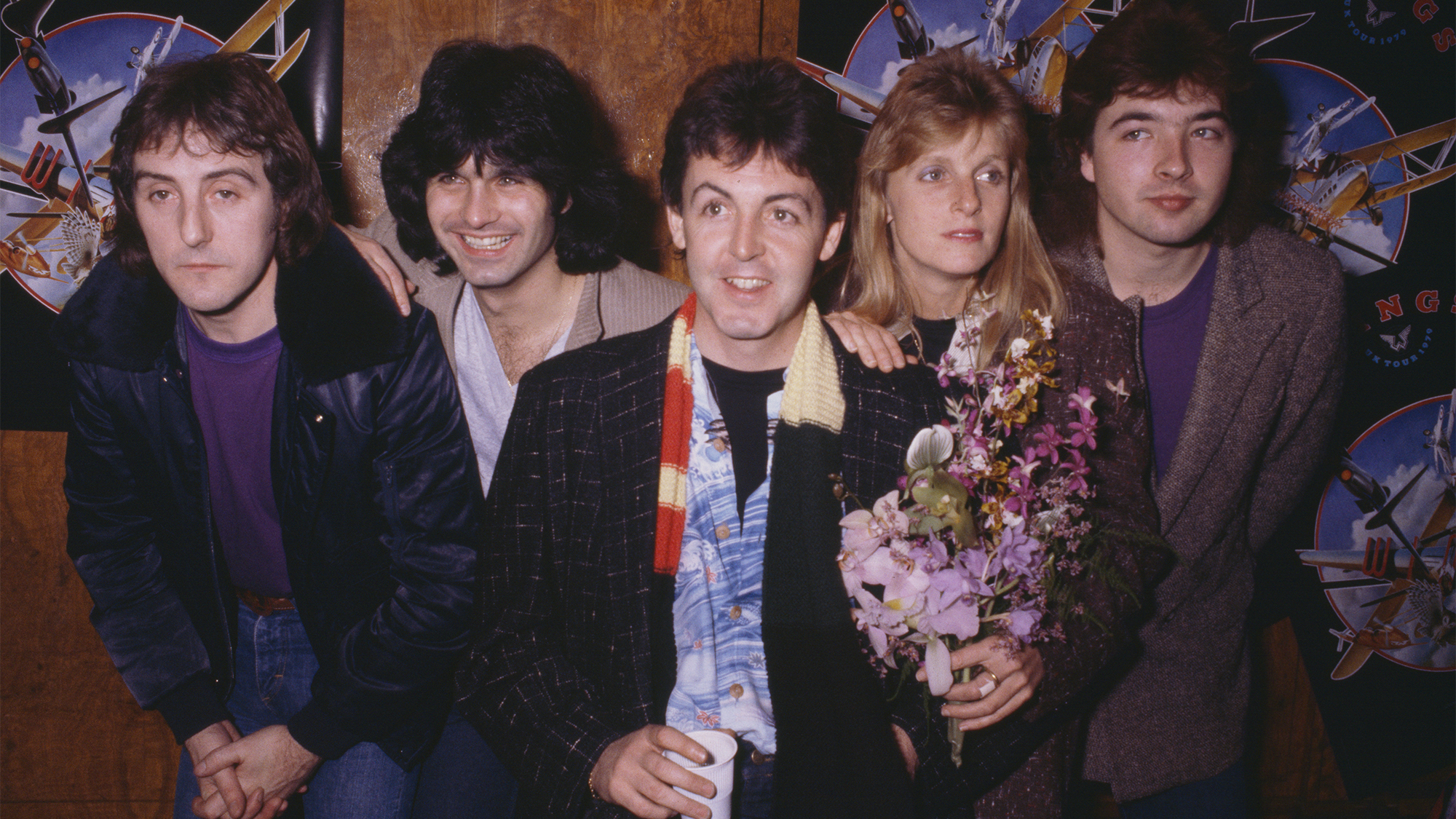
You went from being Mr. Studio Guy to playing arenas with Wings. Did it take you a while to adjust to big stages?
It was a little scary at first, not because I hadn't played in front of fairly large audiences before, but to be in the spotlight as opposed to being kind of in the background was something I had to get used to. Playing-wise, I had a lot on my plate.
For “Getting Closer,” I was running through a Mesa/Boogie and a Roland rack, which allowed me to double my guitar lines with a synth sound and an octave lower. I had a vocoder for “Goodnight Tonight.”
I don't think I played any acoustic for that show. It was strictly electric and a little bit of keyboards. I had a lot to do, and the focus was on getting the job done.
Was there any talk of going to the States?
Yeah. If Paul hadn’t been busted, it was possible. “Coming Up” was number one in July of 1980, so we could have been the touring the States with a number one single.
Where were you when Paul was busted? Did you actually see what happened?
I was standing next to him. I flew with Paul and his family from London to New York. We spent the weekend there and then flew on to Tokyo. That’s how I ended up standing next to him going through customs at Narita. The customs guy opened the very last suitcase, patted a jacket inside, felt something underneath it, then lifted the jacket up, and there was a bag of weed.
Even after that, we had to go kind of in the bowels of NTA airport to be searched. While I was in New York, I acquired a 1957 Les Paul goldtop on 48th Street. I was hand carrying that as we went through customs They came into the room with a screwdriver and pointed to my Les Paul. I had to unscrew the truss-rod cover and on the back just to show there was nothing stashed in there.
We were really hopeful that they would still let the tour go on. It wasn’t uncommon for the reggae bands that would tour Japan. They would get busted at the airport, and then the custom people would take the weed away and the tour could continue.
Which didn’t happen. Paul was put in jail.
Yeah, for 10 days.
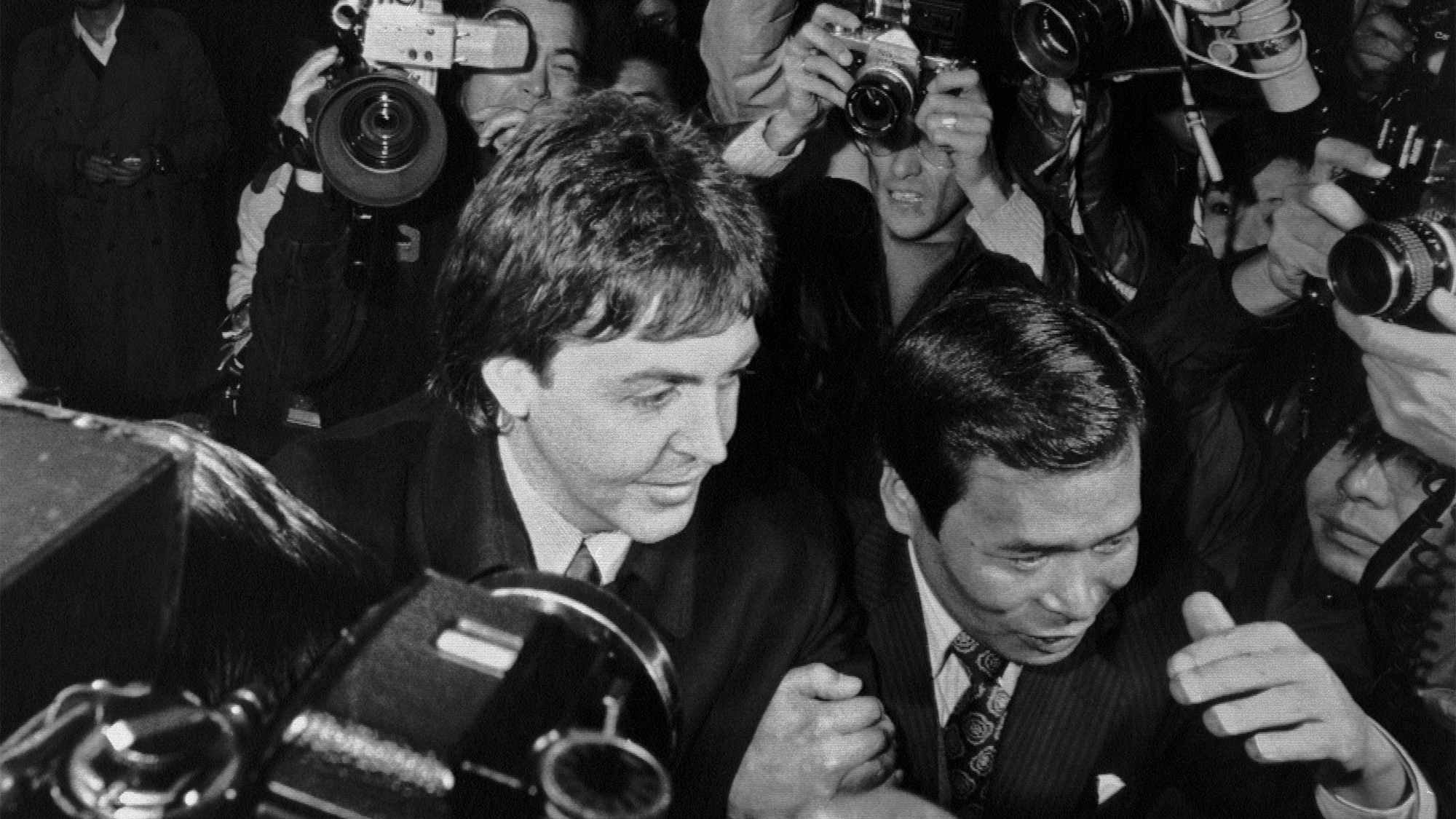
What did you do during that time?
We were basically in a holding pattern wondering what was going to happen. Once Paul got out, he went back to England and got in the studio with Geoff Emerick and Chris Thomas to work on mixes of the last Glasgow concert. The work ethic didn't get waylaid by the experience. It's not like Paul came out of jail and said, “Okay, we're going to go spend a week in the Caribbean.”
There were periods during that year when there were rehearsals of his new material. He asked me to go with him and Linda to France to work with Ringo on what became Ringo's Stop and Smell the Roses album. I was in London realizing that there wasn't a lot of studio work around. I was getting into record production, and I started to compose.
So the bust certainly screwed up the Japan tour, but —
It wasn’t the end of Wings.
By the end of 1980, John Lennon was murdered. Do you think the two things had a cumulative impact on Paul to end Wings?
I'm quite sure that they did, but there were other things going on. Paul and Linda and the kids had moved out of London to Peasmarch. They would drive in to London for work and then drive back. One of the locations for the Back to the Egg album, Lympne Castle, was about 20 minutes from where they had moved to. It was very convenient for them, but less convenient for assembling a recording studio castle. But we made it work.
Fact is, Linda had four kids to handle. They’d done the big world tour, and I think that my feeling was that she was just kind of getting tired. Paul had made a new deal with Columbia Records, so there were a number of factors that were playing into the fact that Wings was running its course. I think the Japanese bust was a significant factor, and once John was killed I think the idea of touring really was off the table for almost a decade.
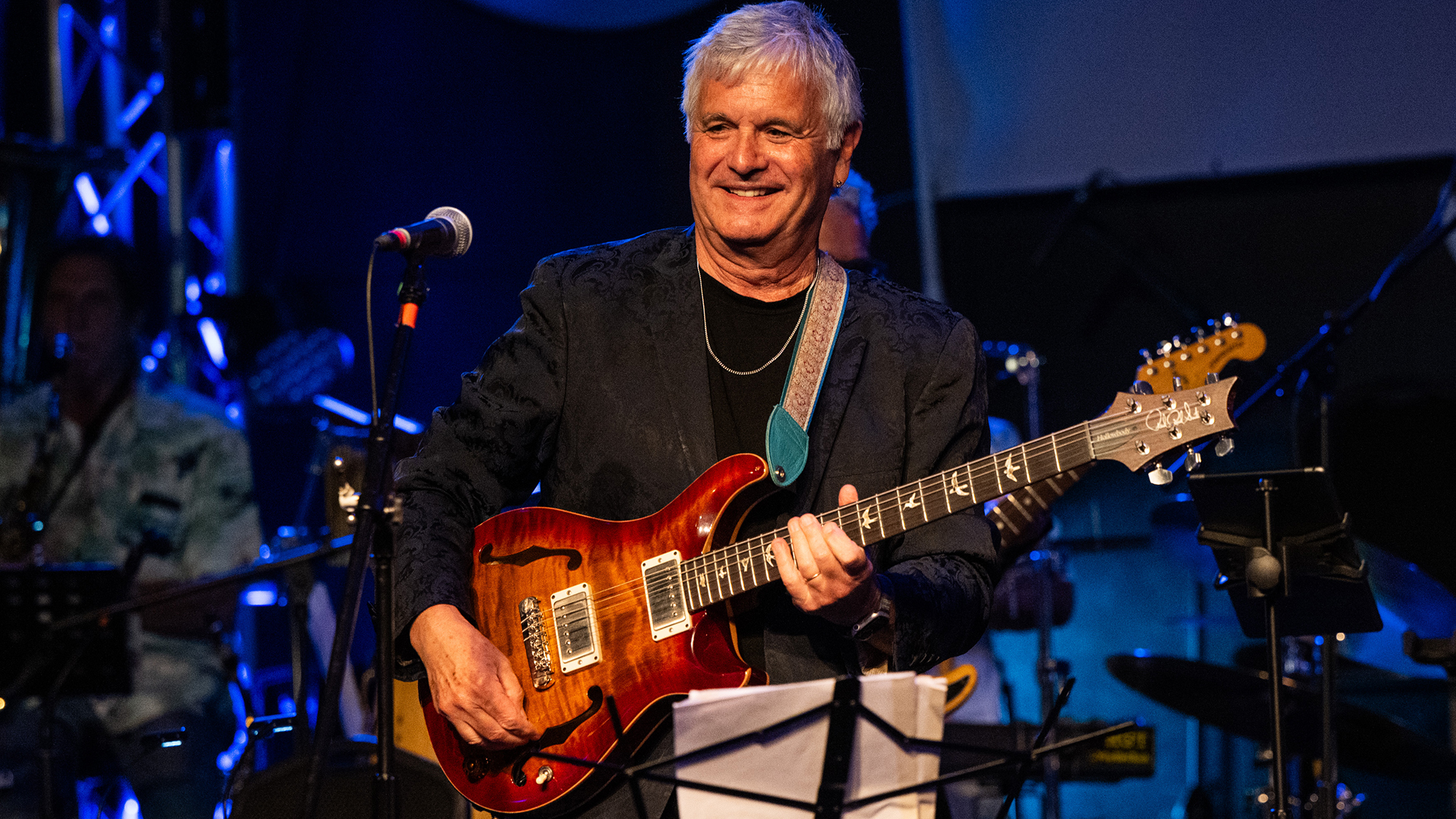
As you said, you got into composing and production.
I did the music for an animated commercial for Paxo chicken stuffing, the “Rooster Booster.” I did a faux “Little Red Rooster” kind of groove for that. I was exploring, really – exploring what I’d learned from that intense period of working with Wings. I started to write some fingerstyle acoustic guitar pieces, which then eventually became my niche. Generally, I worked on self-improvement stuff while trying to become a better guitar player, which I'm always trying to do.
I wanted to ask you about one of your recent projects. You scored an upcoming documentary about Peter Asher.
It’s called Everywhere Man: The Lives and Times of Peter Asher. It’s doing the film festivals right now. The reviews have been great. I really enjoyed scoring the picture – there’s parts where I played reverb-and-delay laden electric guitar, and there’s other places where I play acoustic guitar with a string quartet. On another section I play DADGAD to Lee Sklar’s bass, so I knew the bottom end was well represented. That freed me up to free form fingerstyle parts.
Being that Peter Asher is a legendary record producer, were you nervous at what he might think of your score?
We would have sessions where he would sit and listen and approve or make suggestions. Fortunately, he was quite pleased with everything. It’s a great film, and for me it was nice to get back to scoring. I haven’t done a lot of it over the years, and I’m hoping to do more. With today’s technology, it’s a lot easier than it used to be. Back in the day, I had to sync my 24-track console to a video machine. When I started production, I was using a PortaStudio. Things have changed considerably.

Joe is a freelance journalist who has, over the past few decades, interviewed hundreds of guitarists for Guitar World, Guitar Player, MusicRadar and Classic Rock. He is also a former editor of Guitar World, contributing writer for Guitar Aficionado and VP of A&R for Island Records. He’s an enthusiastic guitarist, but he’s nowhere near the likes of the people he interviews. Surprisingly, his skills are more suited to the drums. If you need a drummer for your Beatles tribute band, look him up.
